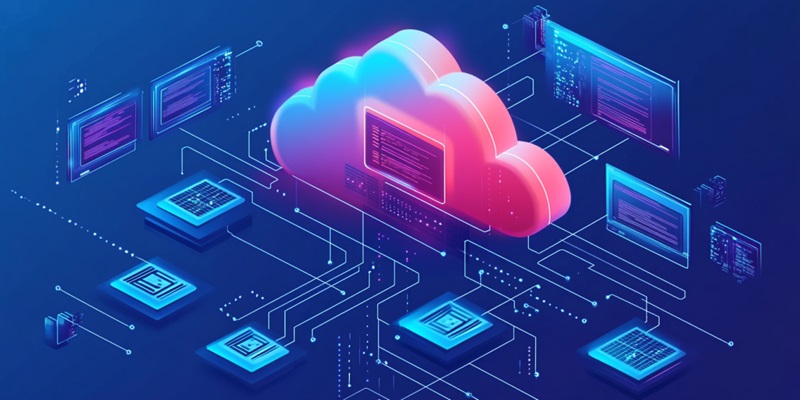The growing adoption of cloud computing has sparked an interesting debate about whether coding skills are essential for effectively leveraging this technology. While cloud platforms like AWS, Microsoft Azure, and Google Cloud offer user-friendly interfaces that allow users to perform basic tasks such as data storage and website setup with little to no coding, the question remains: does a deeper understanding of programming languages inherently enhance the utilization of cloud services? This article delves into the complexities of this topic, exploring the advantages and challenges associated with coding in the context of cloud computing.
Accessibility Vs. Innovation
User-Friendly Interfaces and Wider Accessibility
One of the most significant benefits of cloud computing is its ability to democratize access to high-end technology. Thanks to user-friendly interfaces on platforms like AWS, Microsoft Azure, and Google Cloud, individuals with minimal technical skills can now perform various tasks that were once reserved for seasoned IT professionals. For example, setting up a virtual machine, creating a storage bucket, or deploying a simple website can all be accomplished with point-and-click simplicity. This ease of use has the potential to reduce job barriers, especially in underserved regions where access to formal education might be limited.
However, while this increased accessibility is a positive development, it also raises concerns about an over-reliance on these so-called "black box" solutions. When users depend too much on these simplified interfaces, they may miss out on the opportunity to gain deeper technical skills that are crucial for more complex tasks. For instance, tasks like automating processes, managing large-scale deployments, or developing cloud-native applications often require a solid understanding of programming languages such as Python or shell scripting. Without these skills, users might find themselves limited in their ability to fully leverage the capabilities of cloud computing, potentially stifling innovation and technological advancements.
The Role of Coding in Advanced Cloud Functions
While basic cloud tasks can be performed with minimal coding, more advanced functions often necessitate a firm grasp of programming. For example, automating repetitive tasks through scripts can save time and reduce the likelihood of human error. Similarly, managing large-scale deployments through Infrastructure as Code (IaC) tools like Terraform or AWS CloudFormation requires knowledge of coding and scripting languages. Furthermore, developing cloud-native applications that are optimized for scalability, performance, and cost-efficiency typically involves a good understanding of programming principles.
Incorporating coding skills into cloud computing not only allows for more efficient workflows but also opens doors to innovation. When users can write their own scripts and automate their processes, they gain the flexibility to tailor cloud solutions to their specific needs. This capability can lead to the development of new applications and services that might not have been possible using only pre-built platforms and templates. Thus, while coding skills may not be strictly necessary for basic cloud tasks, they are certainly advantageous for those looking to push the boundaries of what cloud computing can achieve.
Data Privacy Concerns
Simplified Data Storage and Security Risks
The convenience of cloud data storage cannot be overstated. With just a few clicks, users can store immense amounts of data without worrying about physical storage limitations. Yet, this convenience comes with significant privacy and security risks. Many users entrust their data to cloud platforms without fully understanding the implications. This blind trust can lead to vulnerabilities, especially if the cloud provider experiences a data breach or if data is mishandled.
Furthermore, the intricate nature of cloud security often requires more than just baseline knowledge. While cloud services provide built-in security features, true data protection might call for additional measures such as encryption, regular audits, and stringent access controls. For these reasons, an understanding of security protocols and coding can be crucial. Users who are well-versed in scripting and coding are better equipped to implement customized security measures, ensuring that their data is safeguarded against potential threats.
Awareness and Responsibility in Data Management
The increasing adoption of cloud computing has ignited an intriguing debate over the necessity of coding skills for effectively utilizing this technology. Cloud platforms such as AWS, Microsoft Azure, and Google Cloud are praised for their user-friendly interfaces. These platforms enable users to complete fundamental tasks like data storage and website setup with minimal or no coding required. However, the question persists: does having an in-depth knowledge of programming languages improve the efficiency of using cloud services? This article dives into the intricacies of this subject, examining both the benefits and challenges tied to coding within the realm of cloud computing. Understanding the variety of tasks that can be automated, the customization of environment settings, and the optimization of cloud resources are key points in this discussion. Additionally, having programming expertise can lead to better troubleshooting and maintenance of the cloud infrastructure, making coding skills a valuable asset in the cloud computing landscape.

